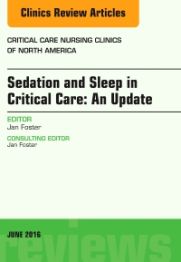Sedation and Sleep in Critical Care: An Update, An Issue of Critical Care Nursing Clinics, 1st Edition
Sedation is a necessary component of care for critically ill and injured individuals. Sedatives assist in coping with mechanical ventilation and other invasive devices, and help patients tolerate procedures and noxious stimuli in the intensive care unit. Sedatives are also useful in the control of agitation and delirium. In addition to fundamental humane reasons, calming patients with sedatives provides physiologic benefits, such as reducing oxygen consumption expended during restlessness, and prevents dislodgement of life-preserving tubes and catheters. When administering sedatives to manage critically ill patients, clinicians must be cognizant of the many complex issues surrounding their use. This issue, edited by Consulting Editor, Dr. Jan Foster, provides current updates in this area, including new guidelines and a focus on delirium.
Sedation is a necessary component of care for critically ill and injured individuals. Sedatives assist in coping with mechanical ventilation and other invasive devices, and help patients tolerate procedures and noxious stimuli in the intensive care unit. Sedatives are also useful in the control of agitation and delirium. In addition to fundamental humane reasons, calming patients with sedatives provides physiologic benefits, such as reducing oxygen consumption expended during restlessness, and prevents dislodgement of life-preserving tubes and catheters. When administering sedatives to manage critically ill patients, clinicians must be cognizant of the many complex issues surrounding their use. This issue, edited by Consulting Editor, Dr. Jan Foster, provides current updates in this area, including new guidelines and a focus on delirium.
Author Information
| ISBN Number | 9780323446525 |
|---|---|
| Main Author | By Jan Foster, PhD, APRN, CNS |
| Copyright Year | 2016 |
| Edition Number | 1 |
| Format | Book |
| Trim | 152w x 229h (6.00" x 9.00") |
| Imprint | Elsevier |
| Page Count | 0 |
| Publication Date | 26 May 2016 |
| Stock Status | IN STOCK - This may take up to 5 business days to ship |
2. Sedation and Analgesia in Transportation of Acutely and Critically Ill Patients
3. Tolerance and Withdrawal Issues with Sedatives in the Intensive Care Unit
4. Sleep Disturbances and Critical Illness
5. The Impact of Liver and Renal Dysfunction on the Pharmacokinetics and Pharmacodynamics of Sedative and Analgesic Drugs in Critically Ill Adult Patients
6. Sleep and Mechanical Ventilation in Critical Care
7. Toward Solving the Sedation-Assessment Conundrum: Neurofunction Monitoring
8. Obstructive Sleep Apnea and Modifications in Sedation: An Update
9. Complications of Sedation in Critical Illness: An Update
10. Application of Clinical Practice Guidelines for Pain, Agitation, and Delirium
11. Sleep Disturbances in Acutely Ill Patients with Cancer
Related Products
-
20% OFF
 Book
Book
-
20% OFF
 Online Resource
Netter's Dissection Video Modules (Retail Access Card)
Online Resource
Netter's Dissection Video Modules (Retail Access Card)and Frank H. Netter
Oct 2015
Special Price $144.79 $180.99 -
20% OFF
 Book
Book
-
20% OFF
 Flash Cards
Flash Cards
-
20% OFF
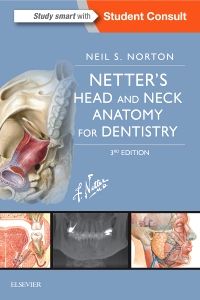 Book
Book
-
20% OFF
 Flash Cards
Flash Cards
-
20% OFF
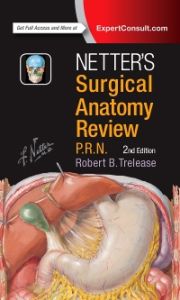 Book
Book
-
20% OFF
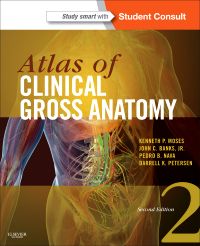 Book
Book
-
20% OFF
 Book
Gray's Clinical Photographic Dissector of the Human Body
Book
Gray's Clinical Photographic Dissector of the Human BodyMarios Loukas
Oct 2018
Special Price $59.99 $74.99 -
20% OFF
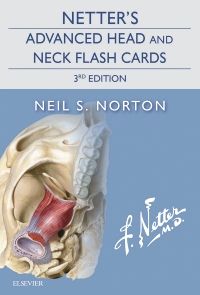 Flash Cards
Flash Cards






